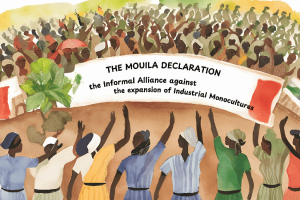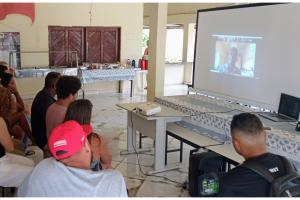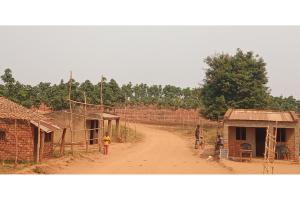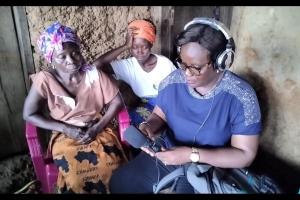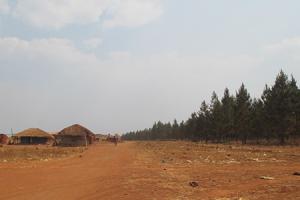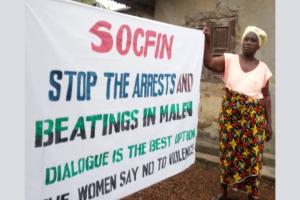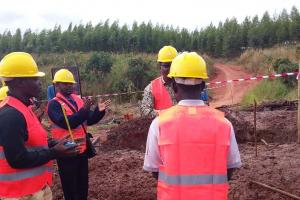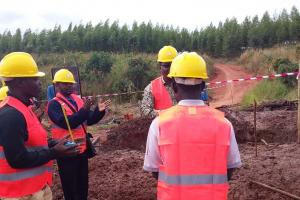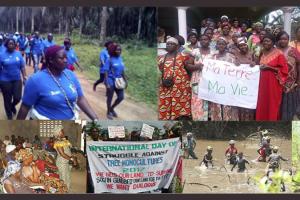Struggles Against Tree Monocultures
Corporate profit drives land grabs to install industrial tree monocultures. Where industrial plantations take root, communities' territories and lives are violently invaded, their forests destroyed and their water polluted. When communities resist, companies tend to respond with aggression. Despite this extreme violence, communities around the world are resisting, organizing and joining forces to defend their territories. Every September 21 the International Day of Struggle against Monoculture Tree Plantations is celebrated.
On the frontlines of the promotion of monoculture tree plantations as a solution to the climate crisis, families affected by tree plantations in Mozambique, Tanzania and Brazil, have once again denounced the serious impacts on their lives and the environment.
Oil palm company Socfin has meant oppression for affected communities. Yet, women have to confront another patriarchic system. Paramount Chiefs are the custodian of the land according to customary law, which often give men decision-making and ownership power over land.
Patriarchal oppression is inseparable from the industrial plantation model, and it is at the base of how companies generate profits. Companies target women, including due to their fundamental role in community life.
In response to an article that was published in WRM’s bulletin, Missão Tabita and WRM received letters from the plantation company, Portucel, and the organization, ORAM. The letters claimed that the article was untrue; however, neither Portucel nor ORAM could prove that the information published was not true.
The company, Portucel, considers its thousands of hectares of plantations in Mozambique to be “sustainable,” despite serious problems and conflicts with and among local communities.
Despite the many profound damages that industries cause in the world's forests, they also cause something else to emerge: the strong and diverse resistance movements of affected communities defending their territories, livelihoods, cultures and even their existence. The struggle continues! (Available in Swahili).
